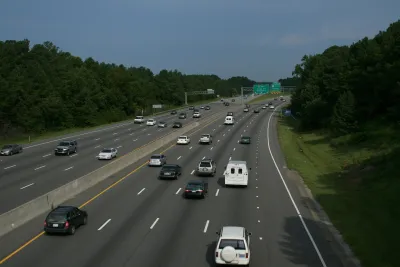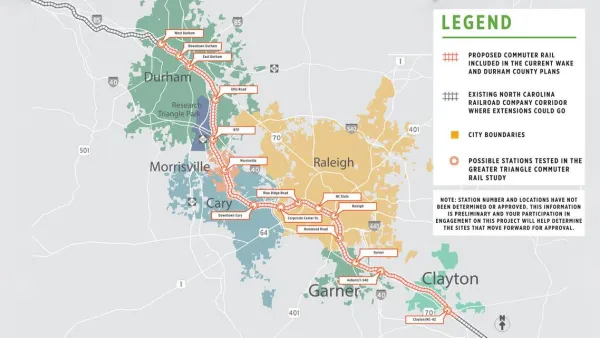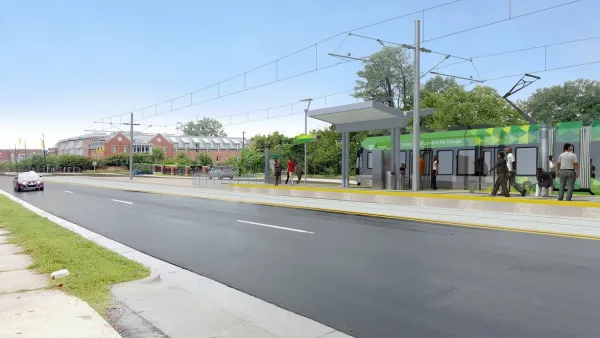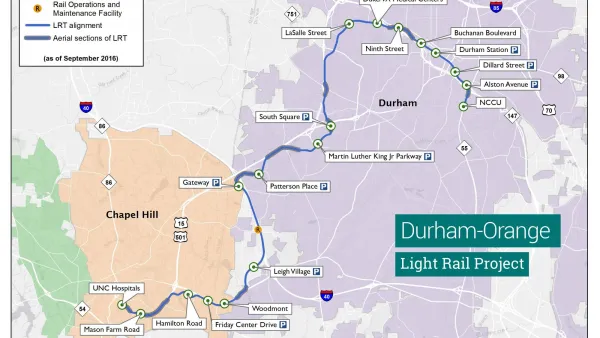A 37-mile commuter rail line under study in North Carolina could connect cities Raleigh, Cary, and Durham in North Carolina, but the system will cost a pretty penny, and it will have to succeed where light rail previously failed.

Richard Stradling reports: "A commuter rail system running 40 trains each weekday between Garner and Durham would cost $1.4 billion to $1.8 billion to build and carry 7,500 to 10,000 passengers a day, according to preliminary estimates from the regional transit agency GoTriangle."
According to the feasibility study released by GoTriangle last week, the 37-mile route studied by GoTriangle would require 34 miles of new tracks to connect Raleigh, Cary, and Durham. Another three miles would use an existing corridor currently owned by the N.C. Railroad.
"The feasibility study from GoTriangle provides the most refined details to date about the commuter rail system proposed by transit plans in both Durham and Wake counties," according to Stradling.
Casting a shadow over the potential of the project to win the financial and political support necessary to succeed is the recent—March 2019—demise of the Durham-Orange Light Rail project.
FULL STORY: Commuter rail in Wake and Durham counties would cost up to $1.8 billion, study says

Analysis: Cybertruck Fatality Rate Far Exceeds That of Ford Pinto
The Tesla Cybertruck was recalled seven times last year.

National Parks Layoffs Will Cause Communities to Lose Billions
Thousands of essential park workers were laid off this week, just before the busy spring break season.

Retro-silient?: America’s First “Eco-burb,” The Woodlands Turns 50
A master-planned community north of Houston offers lessons on green infrastructure and resilient design, but falls short of its founder’s lofty affordability and walkability goals.

Test News Post 1
This is a summary

Analysis: Cybertruck Fatality Rate Far Exceeds That of Ford Pinto
The Tesla Cybertruck was recalled seven times last year.

Test News Headline 46
Test for the image on the front page.
Urban Design for Planners 1: Software Tools
This six-course series explores essential urban design concepts using open source software and equips planners with the tools they need to participate fully in the urban design process.
Planning for Universal Design
Learn the tools for implementing Universal Design in planning regulations.
EMC Planning Group, Inc.
Planetizen
Planetizen
Mpact (formerly Rail~Volution)
Great Falls Development Authority, Inc.
HUDs Office of Policy Development and Research
NYU Wagner Graduate School of Public Service




























